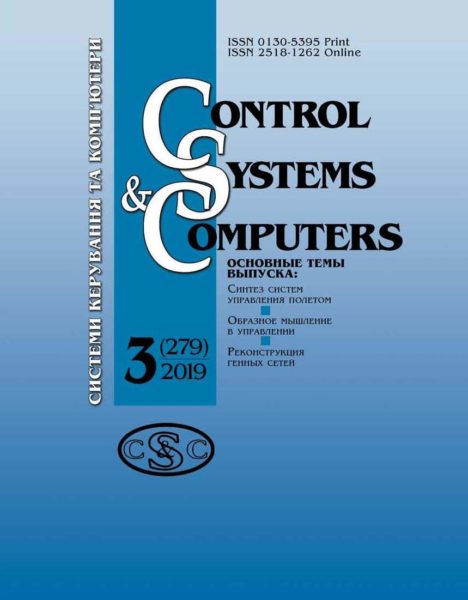Control Systems and Computers, N3, 2022, Article 5
https://doi.org/10.15407/csc.2022.03.053
Control Systems and Computers, 2022, Issue 3 (299), pp. 53-62
UDK 303.721;004.03142
Manako A.F., Doctor of Eng. Sciences, Head of the department, International Research and Training Center for Information Technologies and Systems NAS and MES of Ukraine, Glushkov ave., 40, Kyiv, 03187, Ukraine, E-mail: alla@irtc.org.ua
SYSTEMATIC INVESTIGATION OF CONTINUOUS E-LEARNING AS A COMPLEX INFORMATION SYSTEM
Introduction. For quite a long time, this problem was considered from a pedagogical point of view in various aspects. With the technological development of society, more and more attention was paid to the informational view of e-learning, its importance in the global processes of formation of new constellations of specialists.This was noted in world publications of all countries. It has been proven that e-learning is a complex information system, the study of which should begin with a system analysis, it is the system studies that create the basis for further consideration. Based on the analysis of the main processes of continuous learning from a technological perspective. One of the most important is the mathematization of the processes and phenomena of the surrounding world. This process provides a transition from verbal natural language definitions to abstract models.
Purpose. The purpose of the article is a systematic study of continuous e-learning as a complex information system by formalizing the formalization of the elements of continuous education.
Methods. The paper presents studies of the mechanisms of formation of values based on the phenomenological approach. Basic formalized structures are considered. In the phenomenological approach at the highest level of abstraction lifelong learning is defined as a system of the highest level of abstraction, if the objects of the system and the relationships between them are given.
Results. The article considers a number of issues related to systematic studies of electronic continuous learning. The role of formalization of elements of continuous education is presented. It is necessary to note the special importance of the procedure of formalization of tasks. The key principles of continuous learning as a complex system are defined. The application of the phenomenological approach made it possible to significantly improve knowledge, practical work and research.
Conclusion. The article provides an idea of analternative view of continuous learning as a complex information system, opens a large field of research for mathematicians, systemengineers, specialists in the field of data bases.
Download full text! (On Ukrainian)
Keywords: system: information technology, process, model, technological aspects of continuous learning.
- Valverde-Berrocoso, J., Garrido-Arroyo, M. D. C., Burgos-Videla, C., &Morales-Cevallos, M. B. (2020). “Trends in educational research about e-learning. A systematic literature review (2009-2018)”. Sustainability, 12 (12), pp. 5153.
https://doi.org/10.3390/su12125153 - Rodrigues, H., Almeida, F., Figueiredo, V., & Lopes, S. L. (2019). “Tracking e-learning through published papers: A systematic review”. Computers & Education, 136, pp. 87-98.
https://doi.org/10.1016/j.compedu.2019.03.007 - Manako, A.F., Sinitsa, E.M., 2012. “Electronic Scientific-Educational Spaces and the Prospects of their Development in the Context of the Support of the Mass Scale and the Continuity”. Upravlyayushchie Sistemy i Mashiny, N 4, pp. 83-92 (In Russian).
- Manako, A.F., 2012. “IKT, innovatsiyi ta pidtrymka masovoho neperervnoho navchannya”. Informatyka ta informatsiyni tekhnolohiyi u navchalʹnykh zakladakh, N 3, pp. 20-30 (In Ukrainian).
- Grіtsenko, V.I., Manako, A.F., Synytsya, E.M., 2018. “E-Transformation in Learning”. Upravlyayushchie Sistemy i Mashiny, N 4, pp. 3-15 (In Russian).
https://doi.org/10.15407/usim.2018.01.003 - A memorandumon life-long learning. Commission staff working paper. Brussels, SEC, No 1832, 2000, pp. 36.
- Torres, L., Blevins, A. S., Bassett, D., & Eliassi-Rad, T., 2021. “The why, how, and when of representations for complex systems”. SIAM Review, 63 (3), pp. 435-485.
https://doi.org/10.1137/20M1355896. - Buslenko, N.P., Kalashnikov, N.N., Kovalenko, I.N., 1973. Lektsii po teorii slozhnykh si-stem. Moskva : Sovetskoye radio, 438 p. (In Russian).
- Constantinides, P., Henfridsson, O., & Parker, G. G. (2018). Introduction-platforms and infra-structures in the digital age.Information Systems Research, 29(2), 381-400.
https://doi.org/10.1287/isre.2018.0794 - Manako, A.F., Sinitsa, Ye.M., 2014. “Innovatsionnyye elektronnyye nauchno-obrazovatel’nyye prostranstva: vzglyad skvoz’ prizmu transformatsiy”. Mezhdunarodnyy zhurnal “Obrazova-tel’nyye tekhnologii i obshchestvo”. Educational Technology&Society. 17 (1), pp. 546-577 (In Russian).
- Gritsenchuk, O. O., 2020. “Tsifroví osvítní khabi dlya pídtrimki gromadyans’koí̈ osvíti yak skla-dova ínformatsíyno-tsifrovogo navchal’nogo seredovishcha: dosvíd Níderlandív, Bel’gíí̈ ta Ukraí̈ni”. Ínformatsíyní tekhnologíí̈ í zasobi navchannya, 79(5), pp. 341-360
- Nath, K., 2022. “Evolution of the Internet from Web 1.0 to Metaverse: The Good, The Bad and The Ugly”. TechRxiv. Preprint.
https://doi.org/10.36227/techrxiv.19743676.v1 - Jacksi, K., &Abass, S. M., 2019. “Development history of the world wide web”. J. Sci. Technol. Res, 8(9), pp. 75-79.
- Bukur, N., Delyanu, A., 1972. Vvedeniye v teoriyu kategoriy i funktorov. M.: Mir, 259 p. (In Russian).
- Mesarovich, M., Takakhara, YA., 1978. Obshchaya teoriya sistem: matematicheskiye osnovy. Per. sangl. M.: “Mir”, 311 p. (In Russian).
- Choshanov, M. A. (2018). Didaktika tsifrovoy epokhi: ot prepodavaniya k inzhenerii ucheniya. Informatika i obrazovaniye, (10), pp. 52-60. (In Russian).
- Zgurovskiy, M.Z., Pankratova, N.D., 2005. Sistemnyy analiz: problemy, metodologiya, pri-lozheniya.: Naukova dumka, 2005. 744 p (In Russian).
Received 15.09.2022



